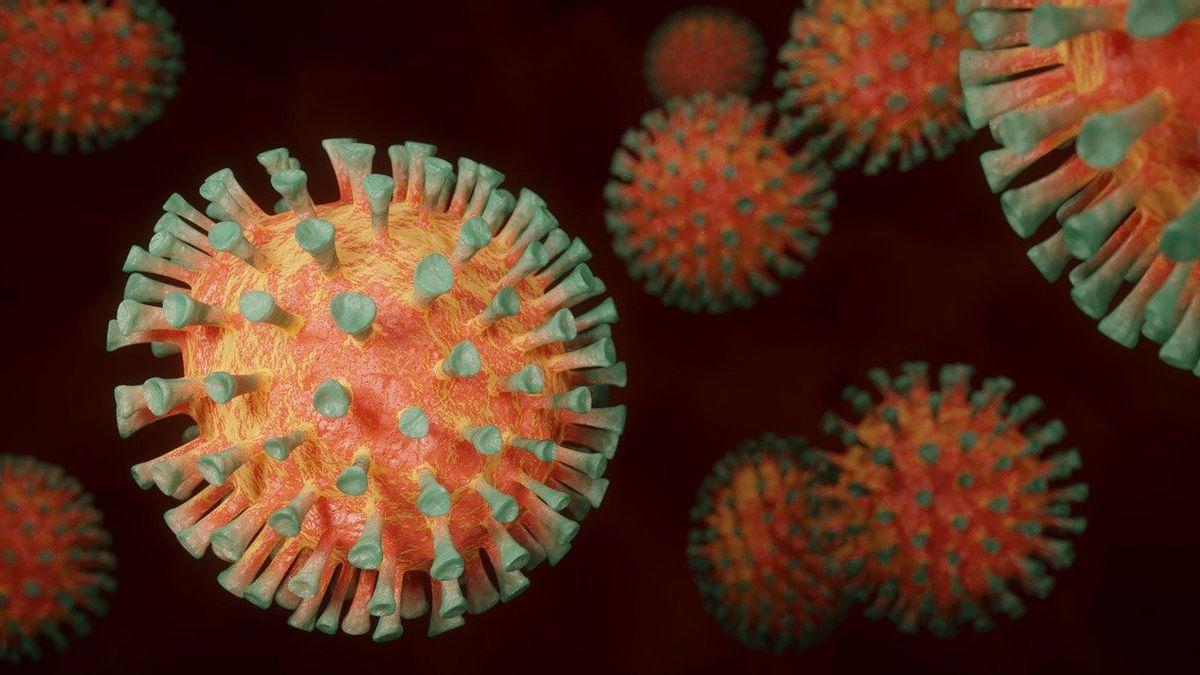JAKARTA - The Indonesian Institute of Sciences (LIPI) said there was no scientific data that proved the new variant of the Corona virus that causes COVID-19, B117, was more deadly than other variants.
"So far there is no concrete evidence to suggest that the B117 variant is more lethal than the other variants," said Head of the Laboratory of Applied Genetic Engineering and Design Protein LIPI Wien Kusharyoto quoted by Antara, Tuesday, December 29.
Wien said a study in England showed that the virus variant was 56 percent more infectious and spreadable than other variants.
"Researchers are confirming with experiments in the lab whether this variant is really more likely to infect cells, making them more contagious," he said.
According to Wien, without more whole genome sequencing, we do not know whether these variants have entered Indonesia or not.
If it has not been entered, he said, then one of the ways to prevent the entry of this variant, among others, is to tighten or limit the entry of people to Indonesia, especially from countries where this variant has been found.
"We also need to improve our discipline in implementing health protocols," he said.
UGM Finds 4 Mutations of COVID-19 in Jogja-Central JavaRegarding the new COVID-19 variant, researchers from Gadjah Mada University (UGM) found four mutations of the COVID-19 virus in Yogyakarta and Central Java. Through the FK-KMK UGM Genetic Working Group and the team has succeeded in identifying the Whole Genome Sequencing (WGS) of four isolates from Yogyakarta and Central Java that are suspected to contain the D614G mutation.
The D614G mutation in the SARS-CoV-2 virus has 10 times higher infectious power and has spread to almost all corners of the world, namely 77.5 percent of the total 92,090 isolates containing the D614G mutation. Meanwhile, in Indonesia, 9 of the 24 isolates published have been reported to contain the D614G mutation.
"One third of them were detected in Yogyakarta and Central Java," said the Chairperson of the UGM FK-KMK Genetic Working Group, dr. Gunadi, Sp.BA., Ph.D. Quoted from the UGM website, Tuesday, December 29.
According to Gunadi, his party took thousands of isolate samples from Yogyakarta and Central Java, however, it was found that there were 15 samples that were known to be mutated but after further testing, only four isolates were considered mutated.
"Of the four samples, three samples from DIY and one sample from Central Java," he said.
Another research member from the FK-KMK Diagnostic Laboratory team, dr. Titik Nuryastuti said that the four samples of these mutated isolates were obtained after the team collected all samples from 98 health facilities (faskes) in DIY and 30 health facilities in Central Java. According to him, samples from this health facility were taken from various hospitals, health centers and the health office.
"The sample in DIY is more dominant, recorded 11,250 samples and 4,311 samples from Central Java. Overall, there were 1,083 who tested positive, "he said.
IDI: New COVID-19 Variants Can Be Detected Through PCR SwabsChairman of the COVID-19 Task Force for the Indonesian Doctors' Association (IDI) Executive Board Zubairi Djoerban said the new variant of COVID-19 that was initially found in the UK was detected through a polymerase chain reaction (PCR) based swab test. Therefore, IDI asks the public not to worry about diagnosing a new variant of COVID-19.
"Now the virus is changing clothes, but PCR can still detect the head and feet. This means that PCR can still detect this new variant, so there is no need to worry too much for diagnosis," said Zubairi in a talk show broadcast on BNPB YouTube account, Tuesday, December 29. .
He said, the mutation of the corona virus named B117 was indeed more infectious. In fact, Zubairi said the new virus was 71 percent more infectious than the previous virus. But, he made sure this virus was not deadlier.
"Experts are now very, very confident that (the new virus, red) is very, very contagious, but it is no more painful. Again, no more deadly," he said.
In addition, this new virus variant can still be overcome by the COVID-19 vaccine which is currently being worked on by experts. Zubairi said experts were also optimistic about this, although the proof still had to be done with research involving COVID-19 patients with new variants.
"Experts remain optimistic because they know that if we are vaccinated we will have immunity in many places. Now, if there is a new variant virus, it will fail in one place. This means that other immunity will continue," he said.
The English, Chinese, Japanese, Arabic, and French versions are automatically generated by the AI. So there may still be inaccuracies in translating, please always see Indonesian as our main language. (system supported by DigitalSiber.id)













